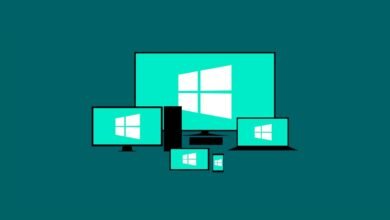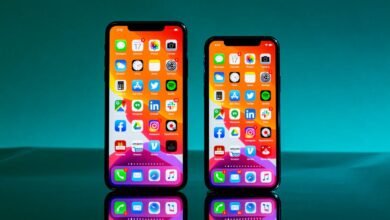How Web Scraping Gives Researchers More Freedom

Any academic research project has several steps, most of which are different depending on the hypothesis and method. But there aren’t many fields that can completely skip the step of collecting data. Even when doing qualitative research, you have to collect some data.
The one step that can’t be skipped is also the most complicated. A lot of carefully chosen (and often randomized) data is needed for good, high-quality research. It takes a huge amount of time to get it all. In fact, it’s probably the step of the research project that takes the most time, no matter what field it’s in.
When collecting data for research, there are four main ways to do it. Each of these has a lot of bad things about it, but some are especially bad:
Related: 5 Best Website Screenshot Software in 2022
Manual data collection
Manual collection is one of the most tried-and-true ways to do things. It’s almost a fail-safe method because the researcher is in charge of the whole thing. It’s also the slowest and takes the most time out of all the practices.
Also, if randomization is needed, it can be hard to make sure the set is fair without putting in even more work than was planned.
Lastly, manual data collection still needs to be cleaned up and kept up. There are too many ways for something to go wrong, especially when huge amounts of information need to be gathered. In many cases, more than one person is involved in the collection process, so everything needs to be normalized and made the same.
Existing public or research databases
Some universities buy big data sets for research purposes and give them to students and other employees to use. Also, some countries have data laws that require the government to release censuses and other information to the public every year.
Even though these are mostly good, there are a few problems. One thing is that universities buy databases based on their research goals and grants. One researcher probably won’t be able to convince the finance department to get the data they need from a vendor, because there might not be enough return on investment (ROI) for them to do so.
Also, if everyone gets their information from the same place, it can make it hard to be unique and new. The number of insights that can be gleaned from a single database is theoretically limited, unless it is constantly updated and new sources are added. Even then, having a lot of researchers use the same source could accidentally change the results.
Lastly, not being able to control how the data is collected could also change the results, especially if the data comes from third-party vendors. If data is collected without research in mind, it could be biased or only show a small part of the whole picture.
Related: Best Video Editing Software in 2022
Getting data from companies
Businesses and universities are now working together more. Now, a lot of companies, like Oxylabs, have partnered with a lot of universities. Some companies give out grants. Others provide tools or even entire datasets.
These kinds of partnerships are all great. But I’m sure that the right choice is to give people only the tools and solutions they need to collect data. Grants are a close second. Universities are not likely to find datasets very useful for a number of reasons.
First, there may be problems with applicability if the company doesn’t pull data just for that study. Businesses will only collect the information they need to run their businesses. It might help other people by accident, but that might not always be the case.
Also, these collections could be biased or have other problems with fairness, just like existing databases. These issues might not be as clear when making business decisions, but they could be very important when doing research.
Last but not least, not all businesses will give away information for free. Even though there may be precautions that need to be taken, especially if the data is sensitive, some organizations will want to see the results of the study.
Even if the organization has no bad intentions, there could be a problem with how they report the results. Not getting results or getting bad results could be seen as disappointing or even bad for the partnership, which would accidentally change the research.
When it comes to grants, there are also some known problems. But they are not as important. Publishing biases are less likely to happen if a company doesn’t pay for all of the research in a field where it works.
In the end, biases and other publishing problems are least likely to happen if the infrastructure is set up so that researchers can gather data without any costs other than the precautions they need to take.
Enter web scraping
Continuing from my last point, web scraping is one of the best things a business can do to help researchers. After all, it’s a process that lets raw or parsed data from many different sources be collected automatically.
But making solutions for web scraping takes a huge amount of time, even if you already know what you need to know. So, even if there are great benefits for research, there’s rarely a good reason for someone in academia to take part in something like this.
Even if we leave out all the other parts of the puzzle, like getting proxies, solving CAPTCHAs, and many other roadblocks, this kind of job is still hard and takes a lot of time. So, companies can give researchers access to the answers so they can skip over the hard parts.
But it wouldn’t be important to build web scrapers if the solutions didn’t have a big impact on the freedom of research. Outside of manual collection, there is always a chance of bias and publication problems in all of the other situations I’ve talked about above. Also, researchers are always limited by something, such as the amount or type of data they can use.
But none of these things happen when you scrape the web. Researchers can get any kind of information they need and tailor it to the study they are doing. The companies that offer web scraping have nothing to gain or lose from it, so there’s no reason for bias to show up.
Lastly, because there are so many sources, it is possible to do interesting and unique research that would not be possible otherwise. It’s almost like having a huge database that can be updated at any time with almost any kind of information.
In the end, web scraping is what will let researchers and academics move into a new age of collecting data. It will not only make the most expensive and difficult part of research easier, but it will also let them avoid the usual problems that come with getting information from third parties.











